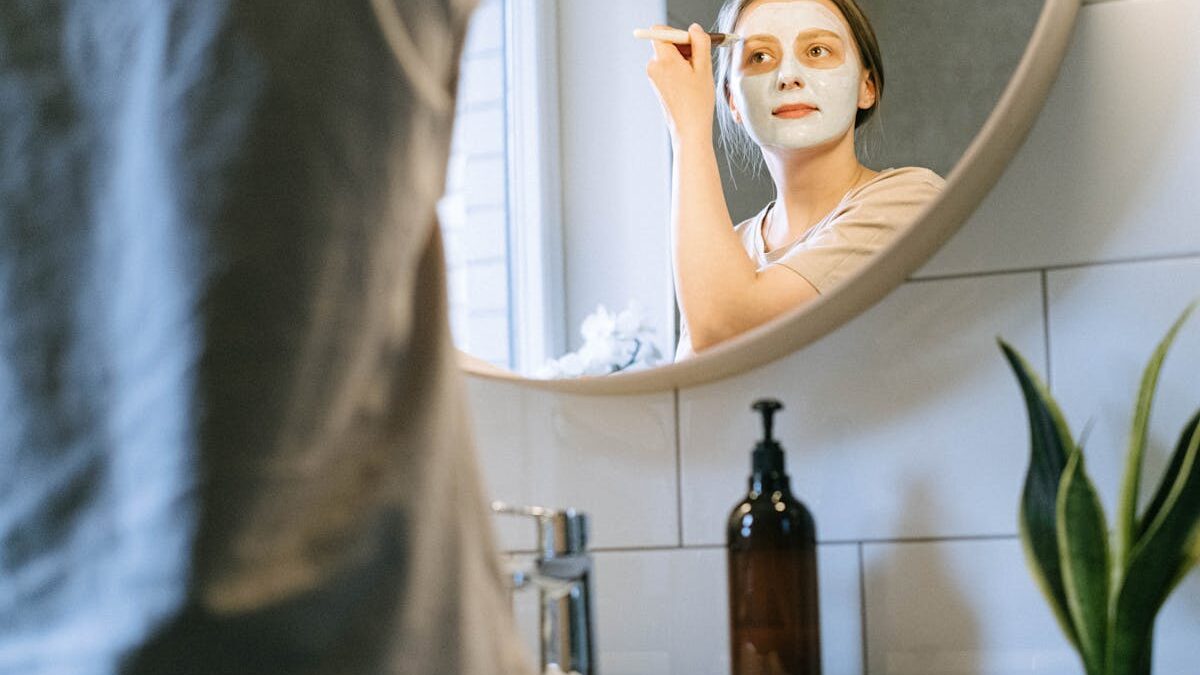The rise of “Sephora kids” and “skinfluencers” is giving our children yet another thing to feel inadequate about—with potential harmful outcomes.
Hyaluronic acid, niacinamide serum, retinol cream. These used to be products only most adult women were familiar with. In recent times however, a worryingly (and growing) number of tweens not only know about these products, they’re purchasing and using them.
“Any young person aged under 20 is way too young to be using anti-ageing skincare with active ingredients,” says Isabella Loneragan, a New South Wales-based skin and dermal therapist.
“While gentle cleansers and targeted acne products made specifically for hormonal teen skin are mostly fine for kids, more active ingredients like retinols, lactic acid, AHA and BHA are not, because in young people, these products very well may damage barrier function.”
The “Sephora kids” trend
If you spend any amount of time on social media, you’ll inevitably encounter videos of young girls sharing their beauty routines and endorsing products. Online tweens who have a love of skincare even have a name: Sephora kids, after the personal care and beauty products retail chain.
According to CNN, “Scores of recent TikTok and Instagram videos have documented the so-called tween invasion of Sephora and Ulta stores, with many grown-ups bemoaning the Gen Alpha takeover of these popular beauty products chains.”
Children as young as eight or nine who used to be more concerned about friendship bracelets and plush toys are now obsessed with skincare products. Some are even spending $80 or $90 for just one product.
It’s a phenomenon that isn’t restricted only to girls either.
Consumer advocacy organisation Choice tells of a Sydney mum whose 16-year-old son recently bought a needling skin roller, a device meant to stimulate collagen production.
It raises red flags and can compound (or introduce) body image issues many kids that age face.
Doing more harm than good
Dermal therapist Isabella has worked on skin and facial treatments for almost two decades. She warns that many of the products the skinfluencers are promoting—and tweens are using—have active ingredients that may cause more damage than good as they strip away the natural barrier the skin has.
“Our barrier function is our skin’s ability to protect itself,” she says. “As a young person, your skin has its own natural ability in this incredible ecosystem. You don’t need to mess with it at all until your hormones change—when we start to see things like breakouts and congestion and pimples.
“Disruptions to skin barriers can lead to various uncomfortable and, at times, painful skin conditions, including rosacea, psoriasis, eczema and acne. Sadly, this can leave children with the exact symptoms they were trying to avoid.”
In an interview with Choice, paediatric dermatologist Dr Li-Chuen Wong warns against ingredients such as retinol, peptides and vitamin C, as well as harsh exfoliating scrubs and some eye creams.
“These products haven’t been tested on tweens or on the skin of tweens and teenagers,” she told Choice. “It’s completely not necessary in tweens and teenagers who actually have truckloads of great collagen and elastin.”
Depending on the type of products and active ingredients, the skincare obsession may also impact on their hormones, which can be especially harmful to young girls.
“The incidence of polycystic ovary syndrome and endometriosis is rising and this is in part being blamed on the rising exposure to toxins that are interrupting how our hormones work,” explains Lucy Lines, a fertility educator. “Many of these toxic chemicals are found in everyday skincare, impacting on the already very volatile hormones of tweens and affecting their future fertility.”
The skincare process our tweens really need
When you peel away the marketing and ask the experts, many agree on just three main products: cleanser, moisturiser and sunscreen. (Which sounds very similar to a basic adult skincare routine.)
“A gentle cleanser and a hydrating moisturiser or a moisturiser with an SPF,” Isabella recommends. And if your tween is concerned about pimples, “A spot treatment containing BHA is a good treatment option.
“I wouldn’t condone young girls under the age of about 20 using anything more than a cleanser and moisturiser under sunscreen. A child does not need to use any skincare until they have a problem to fix. Apart from sun cream, they shouldn’t use anything because they’re messing with an ecosystem and equilibrium that’s already perfectly formulated by our skin.”
Opportunity for a conversation
As with most things to do with our children, having an open conversation with them is key. Find out what is driving their interest in skincare. Is it a skin-related problem, is it an influencer-driven fascination or is it something deeper?
If it’s related to a specific skin problem, seek answers from a medical professional together. Guide them in the process on how to decide who to trust.
If their fascination with skincare stems from social media, help them to think critically about the role of marketing, media and influencers.
Our children’s interests and activities can turn into an opportunity for growth and learning when done gently.
Read next:
- A makeup artist reveals why pharmacy makeup items are just as good as—if not better than—premium brands
- Raising strong daughters in the 21st century
- 7 issues our boys face today and how to help them
- How much sleep do teens need?
How helpful was this article?
Click on a star to rate it!
0 / 5. 0
Be the first to rate this post!
Melody Tan
Related posts
Subscribe
Receive personalised articles from experts and wellness inspiration weekly!

